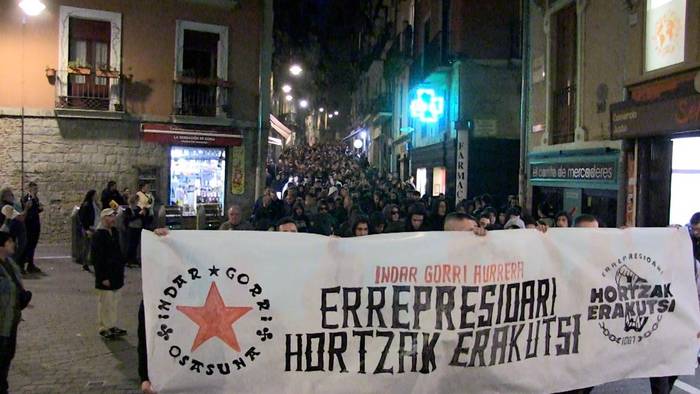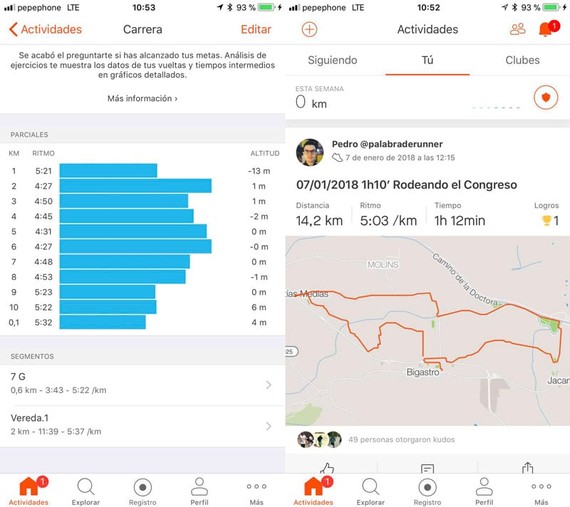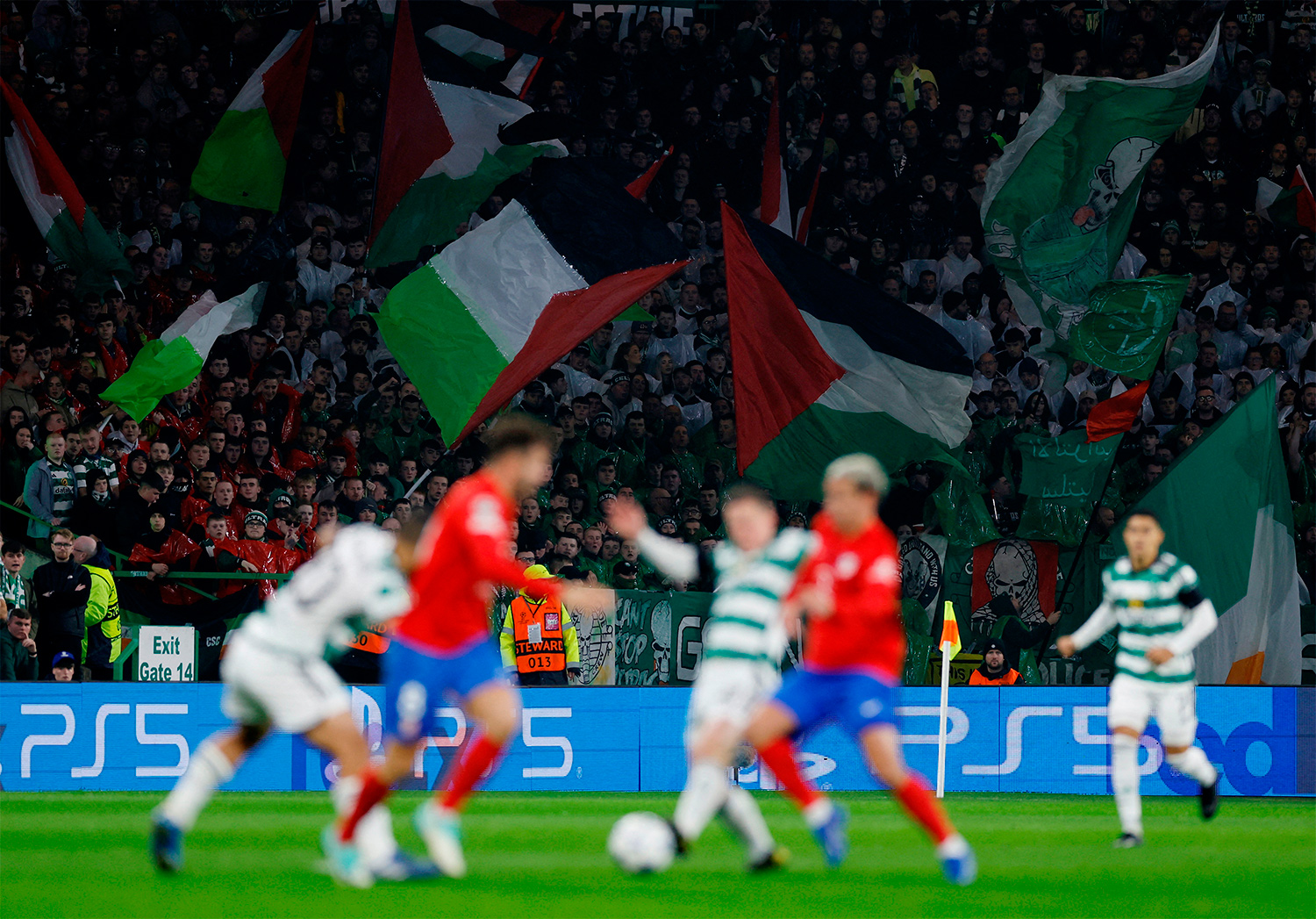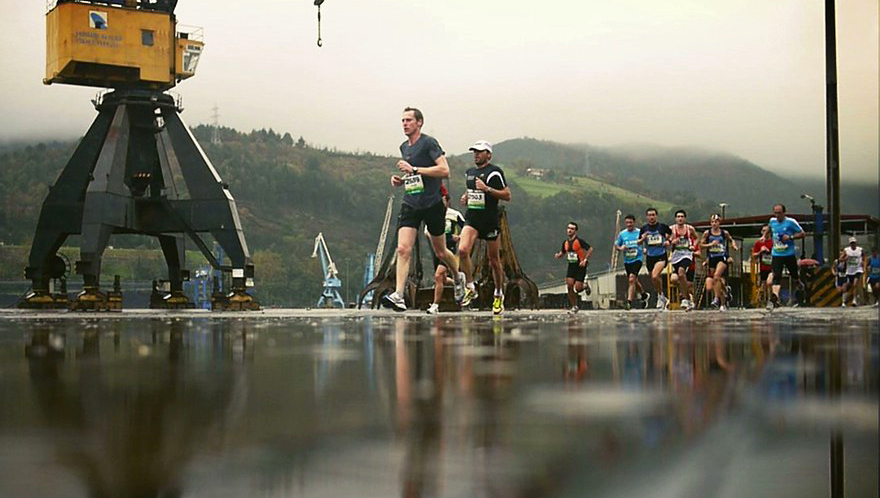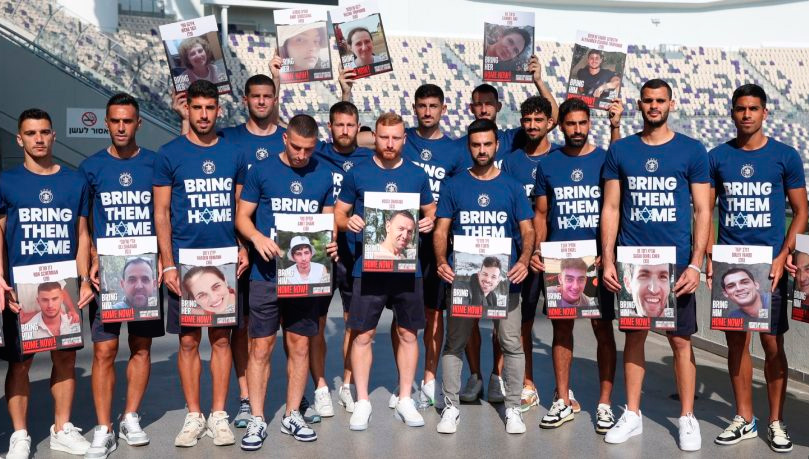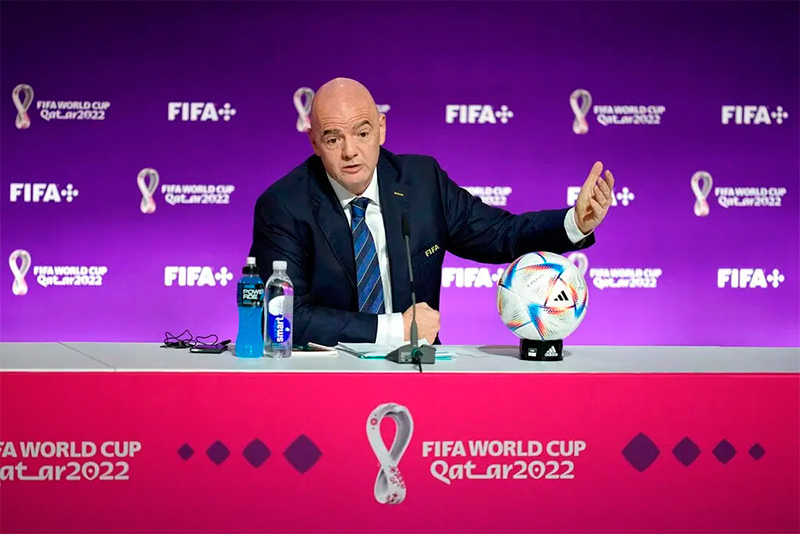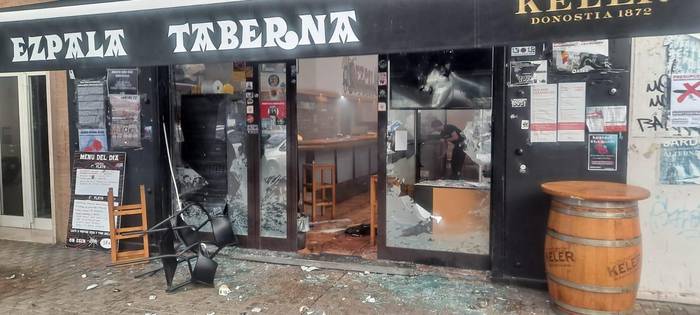"We are blind and non-blind athletes doing sport"
- Despite losing sight, Aritz Huarte continues to win. He left the handball and started playing at the Goalball, at the Club Deportivo Ciegos de Navarra, three years ago. It is a sport created expressly for the blind, and that currently only those who have any visual impairment play. You can't see it, and it feels invisible. Huarte regretted that few know the goalballa. To change that, you would also allow those who don't have vision problems to play.
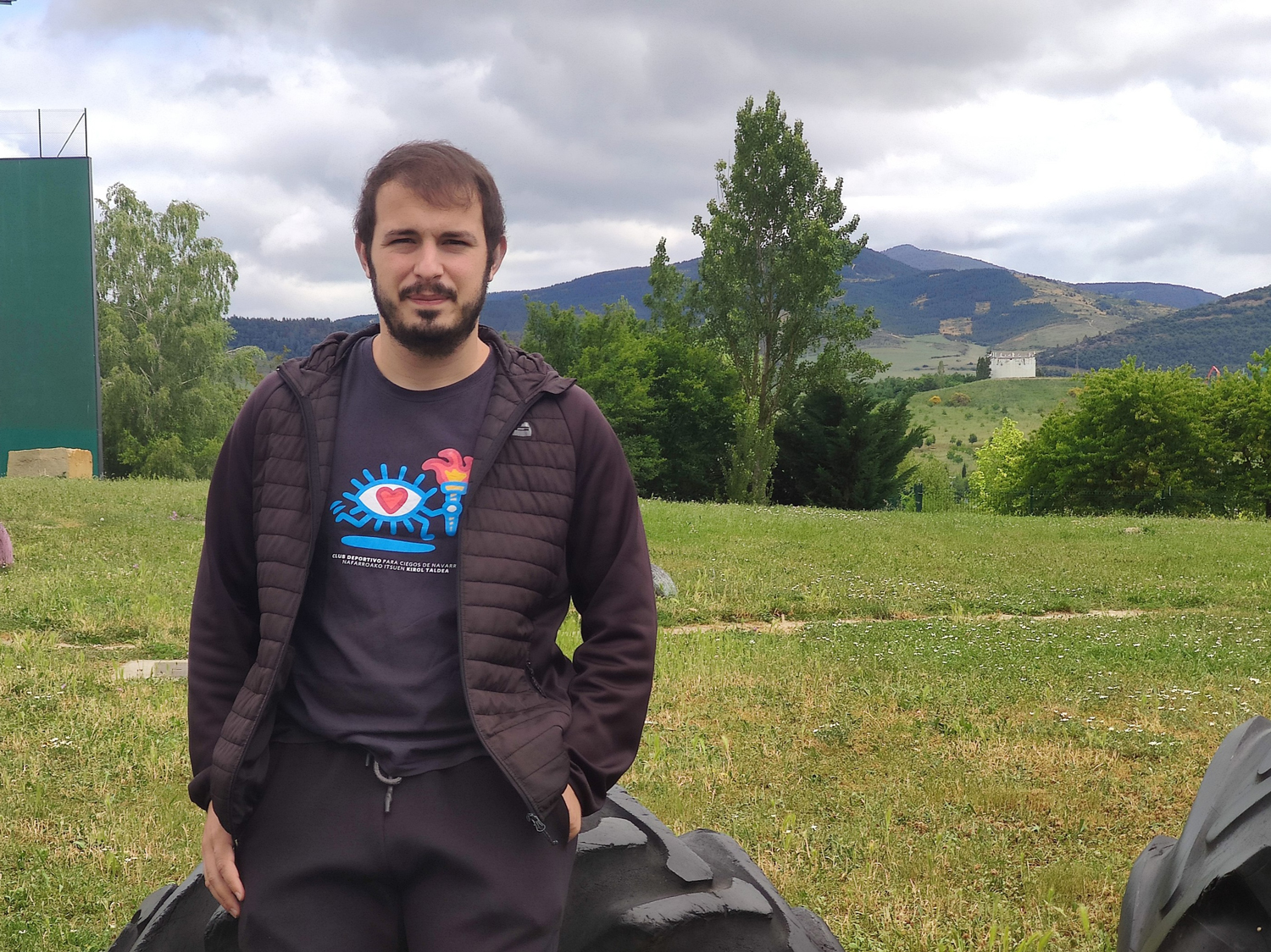
At another time you walked in handball, but as you lost your sight you grabbed the goalball.
At first, the vision problems I felt mostly in the tennis court. I lost the ball, and I realized something happened to me. I would be about 16 years old. In handball, he still did not notice any special difficulty. My problem is that the field of view is reduced to me, and in the front tennis it affected me a lot. In handball, instead, I played until the pandemic. I started to notice the difficulties in taking the passes, and as I always liked the sport, I started looking for alternatives. I saw that in Navarre there were several options in adapted sport, but most of them were individual. I came from a collective sport, and in Pamplona, the only option for visually impaired people was goalball.
How did you feel in that transition? Did you find it hard to recognize that you had vision problems?
It wasn't easy at first. The situation surprised me in the middle of adolescence. At that time, most of the crew started getting a driver's license, but I was banned from driving. I felt torn apart. At first you only see the negative aspects, and I looked at the things that I couldn't do. But over time we realize that we can continue to do a lot of things. In this process it is of great help to know other cases. You realize that the world doesn't end. And sport also empowers you a lot.
What exactly does sport give you?
It's a way of self-realization, so it helps you get the process better. It also gives you many lessons for everyday life. With Goalball I work very useful skills. When launching, for example, you have to take references: door, lines, or whatever. At night I hardly see anything, so when I go out with my friends on the weekend, I use the techniques I've learned in the goalball.
"Our sports are seen by people in a more or less compassionate way: ‘Look, there are some blind people doing some sport.’ You have to turn that around."
Its main feature is that it is a sport created especially for the blind or people with low vision.
That's right. The rest of the sports are adapted sports, but the Goalball was created for the soldiers who were blind during World War II. That is, it adapts directly to our characteristics. It is a specific sport. It is sometimes said to be football for the blind, but it has nothing to do with it. You don't have to relate to other sports. We must do just the opposite: to extol our uniqueness. By this I do not mean that I am opposed to the adaptation of regulatory sports. One thing doesn't take away the other. There is also a debate about goalball: if you have to open the door to those who have no vision problems. We all play with the eye mask, so the conditions are the same. I think it would be good for this sport. More people would know him.
But if those who don't have vision problems adapt better, the blind would run out of place.
In this sense, the debate arises. The risk is there, but the opposite can happen, that is, blind people are better than people who see it perfectly. There is no such debate with other sports. For example, adapted athletics will always be specific to the blind. But goalballa is special. And not opening for everyone is detrimental to visibility. Today, very few people know it. That would change if we didn't set limits. And we can also show that despite having vision problems, we can do sports on a very good level. Moreover, our sports are seen by people in a more or less compassionate way: “Look, there are some blind people doing some sport.” You have to turn it around.
I mean, you want to put the goalballa up to normative sports.
That's it. We want Goalball to be another sport for people, and not a sport for the blind. In the media articles around us, this sport has been relegated to the background by journalists. We are gradually managing to change and at least get into the sports section. Before, however, they included us in social issues. In our case, the best way to promote inclusion is to highlight sports competition, and not just talk about our situation. Otherwise, sport is very hidden. And athlete too. We summarize our philosophy in one sentence: we are blind and non-blind athletes doing sport. There's a lot of difference. Our struggle is there: we want to talk fundamentally about sport and for others to remain in the background.



Well, let's focus on sport. What is the Goalball and what skill it takes to be a good player?
The goal is for the ball to enter the rival goal. First of all, it needs a high level of attention. It's a very fast sport: you only have ten seconds from taking the ball until you finish the game. And in defense, the reaction margin is very small. The ball has a bell inside to make it sound and can't flush it down the air. At launch you can give the first pot at most six meters and the second at twelve meters. So things, the distance between the launcher and the defense was about 10 meters. The ball is quite heavy, it has 250 grams and when a good player launches it can reach a speed of 60 kilometers per hour. So you only have a couple of seconds to react. In addition, the three players on the team must have very good coordination, and technique, mobility and guidance are also of great importance.
The field is eighteen meters long and nine meters wide. With just three players it is very difficult to fill all the gaps.
Yes, and in that sense, coaches are very important. They tell us where the gaps are in the defense of rivals. When the ball is at stake, no, but when it comes out of the field, you can talk to us. And there are also gaps, like handball. Rivals move in a certain way in defense and will defend one field better than another. I mean, there's always a gap, and the coach tells us where he is. But then it's up to you to send the ball.
From a dimensional point of view, they don't need a big space. However, you use special doors and stripes with heights. And it takes complete silence to be able to play. I mean, you can't play in any sports club. We
can adapt the space quite simply to our needs, for example, we put the tapes before each training. The most difficult condition is silence. In sports they give you half a clue and in the other half they play handball or basketball. With that noise, we cannot play; if we do not hear the ball, it is impossible. Today we can only play in the gyms of schools, at least in Pamplona. Along the way, we've had some problems. For example, in March we ran out of room to train, because in the space we used they had set a stage. Now we play at a school in Mendillorri. Although we are well here, we feel that we are always at a standstill: the regulation states that associations of mothers and fathers have priority, so if they scheduled any activity in our schedule, we should go somewhere else.
"Spanish public television has paid a fortune for the broadcast of the Olympic Games, but at first it has moved from the Paralympic Games. It is a disgrace.
In Vitoria-Gasteiz there is a specific sports club for those who want to practice adapted sport. In the Blind Sports Club of Navarra you claim that in Pamplona there should also be such an infrastructure. It
is often said that Pamplona is an inclusive city, but in the case of sport it has that vacuum. In a nearby city we have a good alternative, why can't we have a specific space for adapted sport? The Federation of Athletics has also been asking for a hint for many years. What we are asking for is that there should be at least one sports club where we have priority. And if it's adapted to our needs, better yet. In Vitoria-Gasteiz they have all the facilities to train, and they organize sports championships. For us, however, it is very difficult; last year we made a day of goalball in Pamplona, and it was very exhausting. This year, however, we have never played at home. That is how difficult it is to make people aware of this sport.
You played this year in the premier league. How often and where have you played the games? It's a two-lap
league, and all the matches have been played on three weekends. It's very exhausting. We travel mainly in Barcelona and Madrid, and we usually travel on Saturday morning. We played three or four games in the afternoon and so many in the morning. After the last measurement, we immediately took the train back; we ended up in a fracaso.Hemos first played in the first division, and we could not avoid the descent. Let's see if we come back soon. We now have two men's teams. In her day we also had the women's day, but she disappeared. We also want to find foreigners for the goalball group and, in general, for our association, because we believe we can help them a lot.
You have a wide range of sports. In the light of what we have said before, what do you attach the greatest importance to inclusion or competitiveness?
We tried to work both fields. Sport, of course, has a social aspect. Typically, people with disabilities feel very lonely and sport allows them to feel part of a team. For this we have a group of mountaineers and dances, and throughout the year we carry out other specific activities. But we also work on the competitive side, and some of our athletes are the last. The Paralympic Games will be attended by four Navarros, of which two belong to our club: Izaskun Oses in athletics and Ivan Salguero in swimming. Starting with comparisons, Osasuna doesn't have Olympic athletes. We have two, and we are very proud of them, because we know the effort they have made to get to where they are. They're dedicated professionals, like Osasuna players.
However, there is a big difference in the pay they receive, and in the attention they receive from the media. In this sense, do blind athletes feel invisible?
Yes, and the distinction made by Spanish public television between the Olympic and Paralympic Games serves as an example. It is denounceable and shameful. It has bought for EUR 55 million the right to give the Olympic Games, but it has gone from the Paralympic Games, even though the canon is much cheaper. The payment has been made by a well-known Spanish sports journalist via his Twitch channel. Think about the damage to paralympic sport that only the central image act is offered on a Twitch channel [after the interview RTVE bought the rights of the paralympics].Last
year you were the top scorer of the second division, and you were called the Spanish team. Will we ever see you in the Paralympic Games?
I have that dream. Having worked with the selection of the Spanish State has given me the opportunity to improve, because what you learn the most is with the best. I still have a short time in the bucket and I think I have a lot of time to grow. The fact that I excelled so soon does not mean that it is easy: most of the players I know practice this sport from children, but a few have come to the top. I've already started playing with the selection, so I'm not so far from the Paralympic Games. However, in recent years the Spanish selection has not been classified; only eight selections play. The referents are Brazil and China. Well, let's see if in four years' time I can play against them and fulfill my Olympic dream!
A new student has come to school. It comes from Ireland. The mother of Bilbao and the Irish father of pure strain.
The girl does not know Basque but speaks perfectly Spanish. The teacher puts him on the blackboard to introduce himself to his new colleagues and, once finished,... [+]











